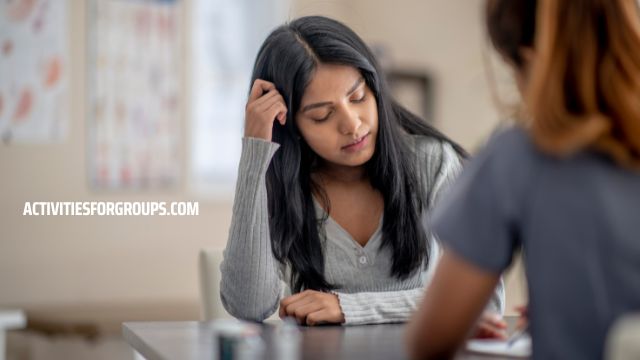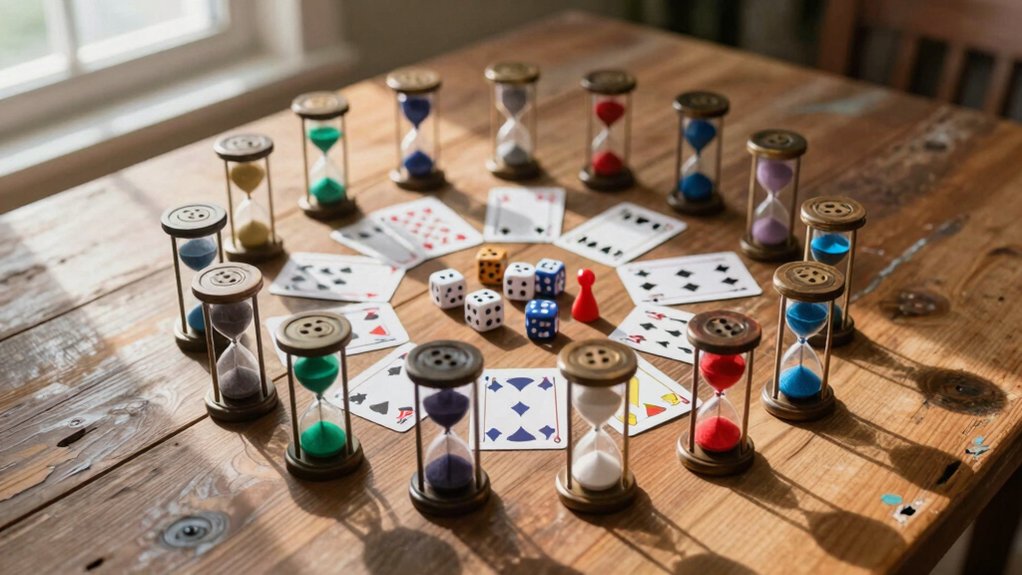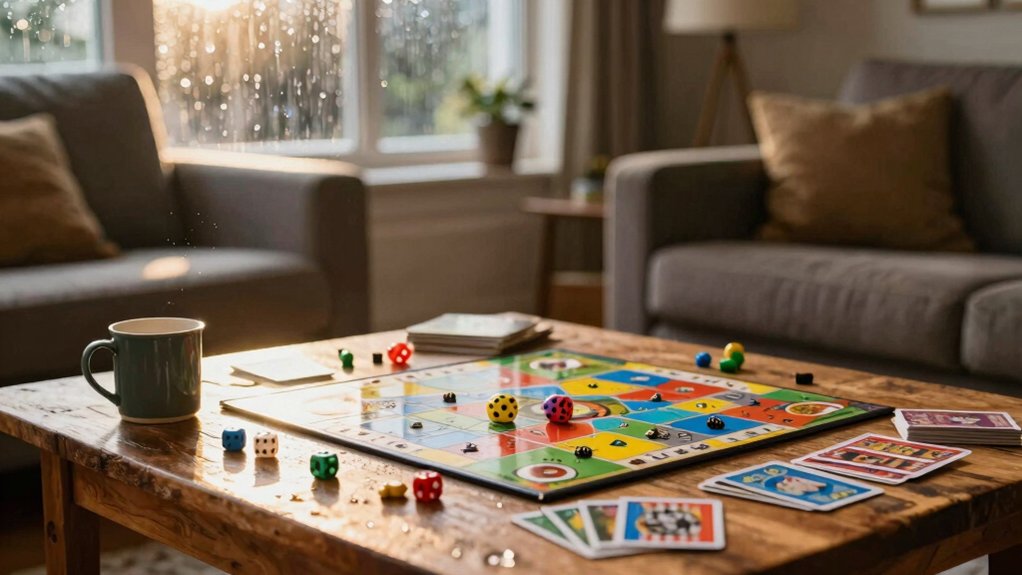As behavioral health affects daily life, you have to take care of it. And of course, your mental health can become significantly better if you do group activities for behavioral health as it will develop your interpersonal skills.
Group activities can be fun as well as poignant. On one hand, it will give you recreation. On the other hand, it will help you to lessen your pain.
That’s why we have listed down a good number of group activities for behavioral health. Keep reading to know more!
Here is an article on my website that you must read, its about 35 Group Activities For Teaching Boundaries In 2024.
What Is Behavioral Health?
Behavioral health means the psychological or mental health of people. It’s the driving force behind strong interpersonal relationships, personality development, and the overall function of a human. Behavior health is responsible for everything we do.
Why Are Group Activities Good For Mental Health?

People with mental health problems can benefit greatly from group therapy. It provides a secure place for people to deal with their struggles and assistance from peers who are understanding without passing judgment.
They will inspire and motivate each other to make their lives better. Hence group activities are very good for mental health.
20 Fun Group Activities For Behavioral Health

These group activities are fun as well as beneficial for behavioral health. You can try out these fun group activities for behavioral health and you will understand the changes within a few days!
- Trip Down the Memory Lane
Everyone recalls their happiest memory and shares it. Each person consecutively takes charge of directing the scene and assigns group members various roles.
- Resilience
Color, sketch or paint pictures of living things in nature that manage to endure in a challenging setting, such as a flower growing on a sidewalk, a fish in an aquarium, or a camel in the desert. Take help from others.
- Reshape Your Childhood
On your paper, do a drawing of you as a youngster. Give this child the words and visuals it requires, as well as a kind, supportive parent.
Share with others.
- Inside-Outside
Create a box with letters and photos on the outside to reflect the traits you exhibit in the outer world. Put letters and pictures on the interior of the vox to symbolize the inner features that are typically concealed from the public.
- Wish Puppet
Make a handmade puppet of a wise person, either genuine or made up, using craft supplies. With their puppet, each person performs a skit in which they each seek their puppet for guidance on a different aspect of life. Participants should give their puppet figures a unique voice and try to have a lengthy dialogue with them.
- Inspirational Posters
Find a phrase or saying that helps you feel better whether you’re sad, angry, or anxious. Make a huge poster of the statement to hang on your wall using your favorite colors, glitter, and photos. Show it to your group members so that they find comfort in
- Dreamy Healing Hospital
Create your ideal getaway resort or hospital with the group that helps in your mental and emotional recovery whenever you are facing problems. Include everything you think might be beneficial, such as pets, food, activities, support, and mediation.
- Perfect Life
Create a picture of your perfect and dreamy life, complete with a house, relationships, outfits, employment, and accomplishments. On the reverse of your paper, list the three steps you will take to fulfill your dream.
- Discussion of health
Discussion topic: Who is a healthy person?/What do you mean by a clear mind? What does a healthy soul and spirit mean?
Divide the paper into four triangles along the diagonal. Each triangle should be filled with color, thoughts, and images to reflect your personal definition of a clear mind, body, soul, and spirit.
- Purpose of Life
Make three parts out of the paper. List your own traits, abilities, talents, and gifts in the opening paragraph. List the global issues that you find troubling, like child abuse, cruelty to animals, poverty, etc., in the third area.
Using your imagination, come up with at least three methods to use the talents you were given in the first area to address issues in the third part. One of these concepts should be illustrated and colored as though it has already occurred and been successful in resolving the issue.
- Butterfly
Discuss indigenous societies’ initiation practices that represented a cycle of death and rebirth for young people. A butterfly larva dying and then emerging from its cocoon to become an adult butterfly is a similar procedure to that process.
Label each piece of paper with the following headings: Child, Planning, Death, and Reincarnation. In each box, doodle, draw, or paint a creative depiction, such as a caterpillar, a cocoon being woven, a cocoon disintegrating, or a butterfly.
- Spirit
Name the spiritual force in which you have faith and use capital letters to write it across the center of your paper.
Examples of such words include God, Soul, Purpose, Love, etc. Draw six spiritual attributes in a circle around the term, including “Healing,” or “Love And loyalty,” using color and an image. Incorporate a border and a background color to connect the photos.
- Protecting Treasures
Create a treasure box on a sheet of blank paper and fill it with the precious elements of you, such as your Love, Beauty, Beliefs, Integrity or Pride, and Sexuality. Draw a line around your valuables with a variety of characters outside the line that can help you decide who is reliable for sharing your treasures. Select defenders that are powerful, knowledgeable, and discriminating to help fend off any potential thieves of your goods.
- Guest House
On a piece of paper, sketch, draw, or color one guest house that welcomes six different emotions to stay. Draw symbols or things in each room to represent how to deal with each emotion, like tissue boxes for grief, punching bags for anger, or a cross for fear.
- Joy of Sharing
Write down your ideas for gifts for yourself, a loved one, and a complete stranger on three sheets of paper. On a piece of paper, draw or color the ideal gift for each recipient. Once you have completed coloring the items in as many details as you can, wrap up the papers as well as decorate them to look like wrapped presents with bubble wrap, ribbons, and bows. Open it up and share it with the group.
- Blind Cooking
In front of each person, place a cake recipe. This is the most effective technique to bring everyone together and collaborate, using a recipe of the other person’s choosing. The other individual must give instructions, but not make physical contact.
Please be aware that cleaning up afterward may be necessary because the kitchen will undoubtedly become messy. Also, avoid using knives or other sharp objects.
- Three Animals
Bring up the top three animals that each person in the group adores. The group must then list three characteristics of each animal that they find appealing, along with the name. The first, second, and third animals are for your desired perception of others, your true self, and your perception of yourself. You next go around the room describing your animal’s characteristics and your motivation for agreeing to talk with the thoughts.
Everyone is required to finish the assignment by creating a drawing that combines the three creatures.
- Hat of Fear
A piece of paper is given to every team member. They express their worst, most persistent fear on the paper. putting each fear into a separate hat. With the help of this trust-based game, you may learn about people’s concerns, as well as how they cope with them and whether they experience them frequently.
- Dance Out Your Pain
Use subtle dance moves to express your emotions. Dancing is a great method to connect both your body and mind as well as to foster a stronger sense of togetherness among group members.
- Drama
Act out a drama or performance to convey feelings. Practices for letting go of self-judgment and role-playing can also fall under this category.
10 Mental Health Group Activities For Youth

Youths can take part in a lot of mental health activities in a group. These activities will keep them safe and sane from overthinking. For example-
- Human Knot
The “human knot” exercise is a game designed to teach a group of people how to cooperate for solving any problem. Group members will form a circle and join arms with a variety of other group members. The group must then work to detangle itself.
- One lie and Two Truths
Therapists should instruct their group participants to jot down three “facts” on a piece of paper. Three of these “facts” should be untrue or lies, with two of them being true. At the beginning of their time together, this group activity helps everyone get to know one another better.
- Group Meditation
For groups dealing with anxiety, fear, stress, intense emotions, or similar challenges, group meditation might be a useful activity to help each person feel more secure.
- Poem Reading
Put together poems using shared words each group member separately wrote on index cards, then read the poems aloud.
- Story Writing
Group members will write a story based on an important event in their life. They will share with others.
- Know Your Goal
Here, group members will tell each other about their life ambitions. Other members will help them and inspire them. They will speak about the necessary steps which are needed to reach the destination.
Members will tell about 3 different things in life for which they are grateful. This will teach them to appreciate the little things in life.
- Drawing Tree
On a piece of poster board, the group will draw a large tree. They’ll scratch their dreams into the tree’s leaves. They’ll gather worms under the tree. Let them draw their phobias on the worms. Now that they are aware of their objectives, they will also be aware of any uneasy emotions or concerns they may have that might prevent them from achieving their goals.
- A Little Positivity
By bringing up the proverb “without the dark, we’d never see the stars,” everyone will try to find the bright side of challenging circumstances. Draw a nighttime picture and convey the “gifts” that have come through adversity using both words and images.
- Validation
Group members will point out the 5 best qualities of each other. Thus, they will feel validated and confident.
10 Mental Health Group Activities For Adults

These activities are really heart-touching. When the members will take part in such group activities, their bonding will get very strong.
- Pass the ball
For playing this game, sit in a circle and play music. Keep passing the ball till the music stops. The person who is holding the ball when the music is stopped will have to share what he is feeling or anything he wants to discuss.
- Draw Your Feelings
Here, all the members of the group will be given paper and colors. They will draw what they are feeling. After the game is over, they will have to speak out.
- Know thyself
Adults will think for a few minutes and talk about themselves in front of everyone. They will speak about their ideology and feelings. Thus, they will know about their strengths and weaknesses and it will be a productive discussion.
- Help to Grow
All the members will write down a few pieces of life advice which they would like to give to their younger selves. After finishing, they will share those with everyone.
- Facing Your Triggers
The mediator will ask the group to discuss the typical triggers for each individual’s behavior. Then, other group participants will suggest various coping mechanisms for maintaining sobriety when triggered.
- Let it out
Everyone will talk about 5 things that they don’t like about each other. A clear conversation will happen and the bond will get stronger.
- Sharing music and dancing
Every member will list down their favorite comforting songs. Then, the list will be exchanged. After doing lotteries, one by one, all songs will be played and members will dance.
- Respect the culture
All group members will engage in a conversation about culture and history to establish cross-cultural and artistic connections. This can also involve discussing the storyline or characters from books that portray a specific cognitive or behavioral state in a session after reading them.
- Book Reading
Members will bring their favorite self-help books. They will interchange among themselves. Then they will talk about it.
- Pair up
A group member’s personality differences, strengths, and weaknesses may be taken into consideration by the therapist when pairing them together during group therapy. In order for the pair to learn reliability and trust one another, they might be asked to complete a puzzle or task.
What Is The Main Benefit Of Group Therapy?

Group therapy will make you empathetic. You will know the struggles and vulnerability of others. Sharing your emotions with your group can make you feel better and reduce any pain or tension you may be experiencing.
You can consider the group your safe place. Side by side, group therapy is a bit cheaper than individual therapy.
Verdict
Your sound behavioral health is your biggest asset. To take care of it, you have to become self-conscious. When you’re in a group, this process becomes comparatively easier.
Hopefully, this article on group activities for behavioral health will help you. Take care!




Leave a Reply